HOW TO CHOOSE A COMMERCIAL SECURITY CAMERA INSTALLER
Installing or upgrading your existing security camera system may be on your list of options if your company wants to boost security. It’s crucial to think about the kinds of cameras you need and where the optimum position is for each of them whether you’re starting from scratch or seeking to add more cameras to an existing installation.
A business security camera installer can help ensure security cameras are setup properly in addition to helping you choose the best commercial security camera system.
This manual will provide you with information on the factors you should take into account when selecting a security camera system installation and the alternatives accessible to your company.
Table of Contents
A business security camera installer: what exactly are they?
An installation of business security cameras doesn’t just install cameras without explaining how to utilize them.
Your installer should be able to:
- Choose the ideal products for your requirements.
- Choose a location for the cameras.
- Describe the expected expenses and timeframes to you.
- Address any queries or worries you may have concerning the project.
While commercial security systems installers offer a variety of installation services, installers of commercial security cameras concentrate on any surveillance capabilities that your company needs or wants. A skilled CCTV camera installation will not only provide you piece of mind, but your installer will also make sure that the cameras they are considering are the correct match for your needs, assisting in the shift from reactive to proactive security operations inside your firm.
Recognize your top security concerns
Understanding the precise security objectives for your area and sector is essential before deciding on security camera installation ideas. Think about the following:
Are there any particular locations in your facility that need attention, such as those with little physical activity or those housing valuable items?
To ensure that your parking spots, stairwells, entrances, and exits are covered, you could choose to add exterior cameras or put a new security camera system with a view of your storage room, for example.
Should your cameras be covert, or do you want more pronounced ones?
While bigger security camera types can operate as visible deterrents to lessen the likelihood of criminal behavior, dome cameras are covert and may go unreported.
How will you monitor the security camera system you installed for your business?
Think about the areas where you need extra visibility and how you want to use any video. The right products for storing video footage, determining whether cameras should have built-in analytics, allowing remote access to camera feeds, and suggesting interoperable products for managing your video system after camera installation are all things your security camera installation professional can help you with.
Are there any regulations that your company must follow?
When it comes to video monitoring, there are basic criteria that all businesses must follow, and some have more detailed regulations. A security camera installation professional can advise you on the rules and regulations your video surveillance system must adhere to, whether you’re in the education, government, financial, or law enforcement sectors, or at a location like stadiums or airports.
Know which CCTV systems you require
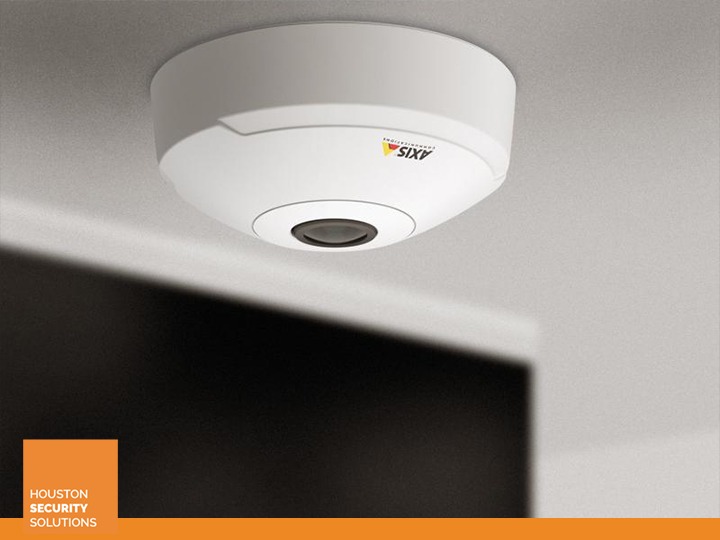
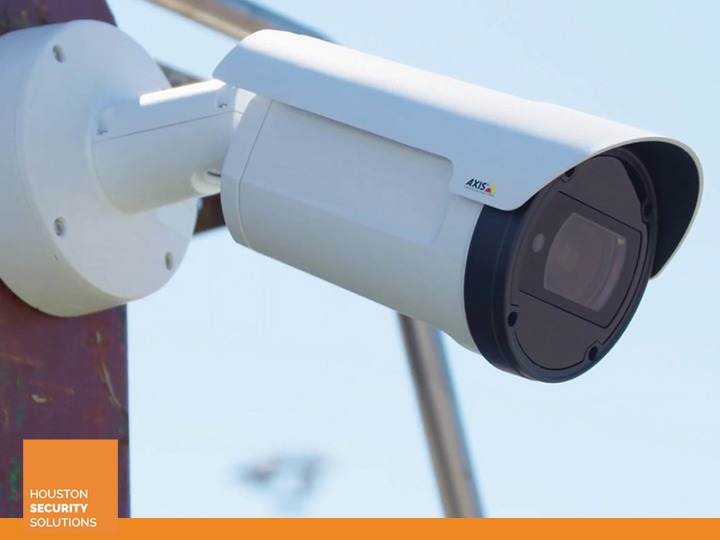
It could be difficult to locate a solution that meets your demands with the broad range of video security systems available on the market. After you’ve decided what matters most to you, CCTV system installers will collaborate with you to design a unique security camera and software system.
Often, the following areas might pose particular difficulties:
- Outdoor permissions – Environmental aspects like weather, wildlife, and vandalism can prompt CCTV system installers to suggest specific products, like ruggedized cameras that can operate in extremely hot or cold temperatures, or cameras with built-in wipers to improve visibility in rainy or snowy conditions.
- Narrow spaces – Smaller rooms and hallways can frequently bring infrastructure problems, such as a lack of space for wiring, which could prompt technicians to propose wireless IP cameras. Wide-angle cameras could also be needed to fully cover the specified target area.
- Building perimeters – Adjustable and remote-monitored cameras may be useful for covering open regions like building perimeters. This would enable security personnel to adapt for different viewpoints with a single camera rather than depending on a network of fixed-view sensors.
The many software and hardware solutions suitable with your new security cameras will be explained to you by professionals that install commercial security cameras. Also, they may assist you in integrating current systems with recently installed security cameras, preventing the need to buy new hardware and software.
Choose the best location for your camera
When deciding where to position your business security camera installation, it’s necessary to take a number of aspects into consideration. Throughout this procedure, the assistance of your CCTV camera installer is crucial.
A business security camera installation expert will look at things like access points and the locations of important assets. Whether you choose wired security cameras or wireless security cameras, they will also evaluate lighting and HVAC systems that may have an impact on the effectiveness of your security cameras.
The security camera system installation will take into consideration both the amount of natural light present during the day and any artificial light sources that could be in use at night. These elements will determine the best locations for your security cameras, as well as if you require cameras with infrared night vision or the flexibility to adapt to changing lighting conditions. You may determine whether you need CCTV cameras inside, outdoors, or both with the assistance of the CCTV installer.
Consider including additional camera features
Consider whether any particular features are required for your security cameras in addition to figuring out how many cameras you’ll need and where they’ll go.
For example, cameras in factories may need additional heat or dust protection, whereas outside cameras, such as those used for airport exterior areas or parking lot security, may need to be especially tough or have built-in protection from severe temperatures.
A business security camera installation may suggest cameras with built-in video analytics to help teams properly detect and pinpoint possible events rather than having to filter through endless amounts of film in order to make monitoring any number of cameras more efficient. In contrast to a home security system, these modern video systems require professional installation.
Regular maintenance and troubleshooting
A professional video security installation contractor will be on hand for any continuing maintenance requirements once your camera network has been set up. A security camera system installation may help in a number of ways, including delivering technical support in the event that a camera should suddenly cease working, giving troubleshooting advice, doing an on-site examination, and carrying out any required maintenance.
In order to guarantee that your camera hardware and firmware are running the most recent versions of the available operating software, CCTV camera installers may also deliver upgrades and routine system updates. Also, if security professionals have identified any problems while watching your CCTV camera feeds, they may help with hardware device reconfiguration or camera position adjustments.
Commercial security cameras for business
- Business security cameras with enhanced coverage and IR that improve situational awareness
- Video analytics with AI to find incidents
- Hours of video are easily sorted through by Video Search to locate a suspicious person or vehicle.
- Integrates with third-party ONVIF® compliant platforms
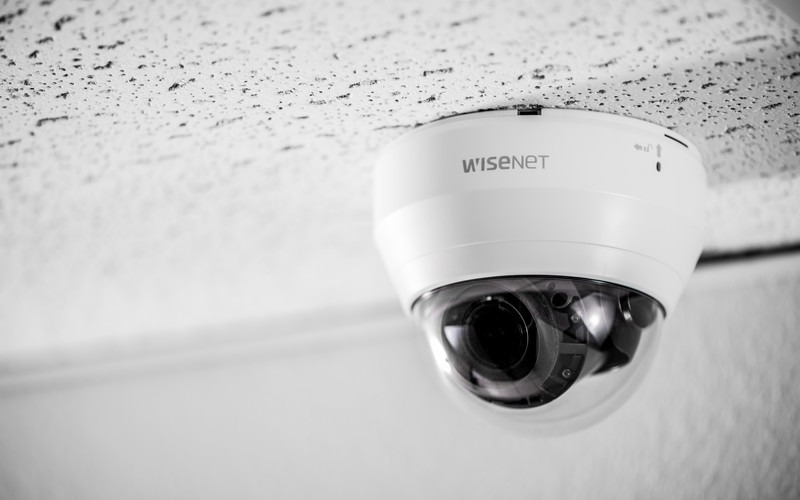
More aspects to think about
More than just the actual hardware parts are taken into consideration when choosing the best commercial security cameras for businesses. Also, it’s crucial to think about the many features of commercial camera systems and choose vendors that can meet all of your requirements.
Motion-activated video recording. Only when motion is detected in the frame by a motion-triggered workplace video security system will it start recording video. Your business surveillance systems’ data storage expenses and upload needs may be reduced as a result. This function is handy for capturing only certain occurrences or for keeping an eye on areas with infrequent activity.
Recording video continuously. A video surveillance system that records continuously would capture everything. Continuous video surveillance may be required in places where there is a lot of activity, such a parking lot or lobby. Continuous recording, however, consumes more data and storage. Based on your facility, compliance concerns, and security requirements, decide on the video surveillance and retention standards for your company.
Cameras with night vision. Lighting has a crucial role in security. Business video security systems may benefit from cameras with HD and full-color night vision capabilities, particularly for after-hours and outdoor monitoring. Even in the dark, the top commercial night vision video surveillance systems can record sharp, clear pictures.
Pan, tilt, and zoom cameras. You could want the capability to zoom in, tilt, or rotate the image depending on where your video security cameras are situated for increased adaptability. The cost of these security cameras is often more than that of a basic dome or bullet camera, which can only capture a single image.
Waterproof cameras. You’ll need weather-resistant hardware for any commercial video system that calls for outdoor installation of cameras. Commercial outdoor security cameras can resist harsh weather conditions, including freezing rain, snow, and sleet.
How to choose the best installer for your future business security camera installation
It’s important to choose an installer that is familiar with your industry and your company’s particular requirements, whether you’re looking for an installation for local authorities surveillance for public safety or school security cameras.
To guarantee that your company’s vital assets are safeguarded, the ideal commercial security camera installer should have knowledge of frequent weaknesses and which cameras can address these problems.
Here are eight queries to ask your commercial security camera system installation to help you determine whether a specific firm is a good fit for your enterprise:
How many cameras would I installed?
Your installation’s camera count will be mostly determined by your budget. A security camera installer should be able to offer advice on how to make the greatest use of the available resources, but plans should be developed to guarantee that important areas are covered.
For instance, upgrading your system might not need removing and replacing all of the current security elements; instead, installers might advise picking a cloud-connected network or cloud security cameras that can be quickly incorporated into current systems to save total installation costs.
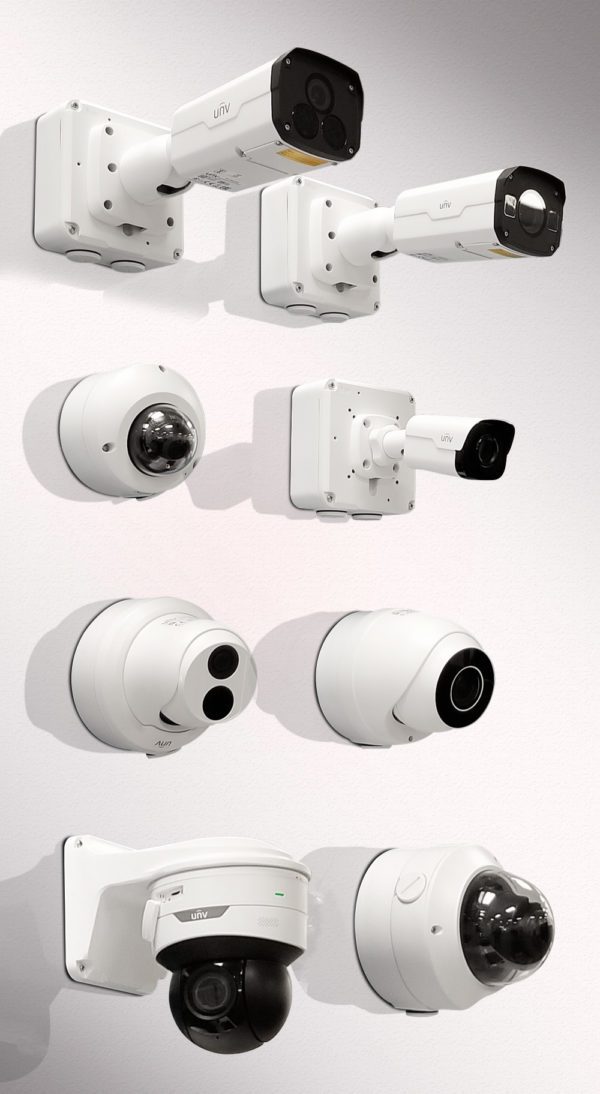
What kinds of cameras do I need?
In order to create a tailored installation, a skilled security camera installation should be aware of your company’s security needs. The demands of each business will be different, and so will the kinds of cameras that are placed.
For instance, commercial office security professionals may need remote access to cameras so they can view CCTV feeds outside of normal business hours, while high-security institutions securing sensitive information or valuable assets may require cameras with night vision, pan, tilt, and zoom capabilities so they can dependably keep an eye on access points around-the-clock. Moreover, CCTV-style bullet cameras may be required for retail shop security to monitor particular access points.
Are hardwired cameras required, or are wireless cameras preferable? Is it necessary to incorporate high-resolution video with facial recognition software? You can tell if a security camera installer can provide the greatest solution by inquiring in detail about the kinds of cameras they would suggest for your company.
Do your cameras comply to the requirements of my industry?
Verify that all installed security cameras comply to both general and any industry-specific norms and regulations.
For instance, cameras for federal government agencies must include FIPS-compliant encryption that satisfies strict requirements for data security. Consult your business security camera installer on any NDAA or FCC rules that may be relevant to your system.
How simple is it to add cameras or improve my security system?
Businesses should think about scalability to future-proof newly installed security camera systems. Your security solutions must be able to support the installation of new networks on the same platform if you intend to establish new sites or expand operations.
By taking these factors into account, security teams may utilize the same login credentials, operate cameras across different sites using video management and monitoring software, and add new gear at any moment without needing to create new infrastructure.
Does analytics come with your cameras?
Security cameras are one thing, but an intelligent system that can assist you in creating and implementing a smarter security plan is quite another. Analytics may increase the effectiveness of customized security solutions. For instance, cameras monitoring parking garages may benefit from software for license plate recognition, comprehensive vehicle classification, or motion detection.
To track occupancy levels and learn more about how areas are utilized, visitor management analytics may be applied to cameras placed at key doors and halls. The schedules for HVAC and lighting systems may then be improved with the use of this data.
Will my current software work with my new cameras?
Instead of replacing all of the equipment and beginning over, it’s possible that you’re seeking to add more security cameras if you currently have equipment in place. Every potential installer should know about this so they can decide whether they can incorporate it into a new video security system they design for you.
Do you provide ongoing support?
Your new security camera system probably needs some upkeep after installation, whether it’s software updates or system health checks. In the case of identified situations such natural catastrophes, incursion events, and the incidence of vandalism, property damage, or theft, service providers can also give fast help to assist security personnel.
What alternatives do I have for warranties and insurance?
A commercial security camera system should last for many years, therefore it is important to carefully evaluate maintenance, servicing, and support alternatives before getting one.
Ask the service provider specifically about any warranty conditions that might apply, such as how the company plans to handle broken or malfunctioning camera equipment and their responsibility in the event that any intrusion events happen as a direct result of improperly installed or maintained camera equipment.
A minimum one-year installation guarantee that covers all wiring, weatherproofing, and installation materials should be offered by suppliers. Depending on the product, a warranty of one to five years is typical, as well as one of three years or more for hardware. For the system to function as specified in your initial plans, your company security camera installation has to additionally provide continuing technical assistance.
It is also important to talk about insurance. Typical needs include covering for any potential property damage during installation, terms for payment if work is not finished by a certain deadline, and detailed specifications and coverage for each particular hardware device.
Cloud Video Surveillance
- Using a web browser or a mobile app, you may remotely watch live or recorded video and keep an eye on many locations and cameras whenever you choose.
- By connecting several sites to the cloud, maintain servers and cameras utilizing centralized access, system administration, and integrations.
- With the Advanced System Health Monitoring capability, commercial video security system availability will be increased.
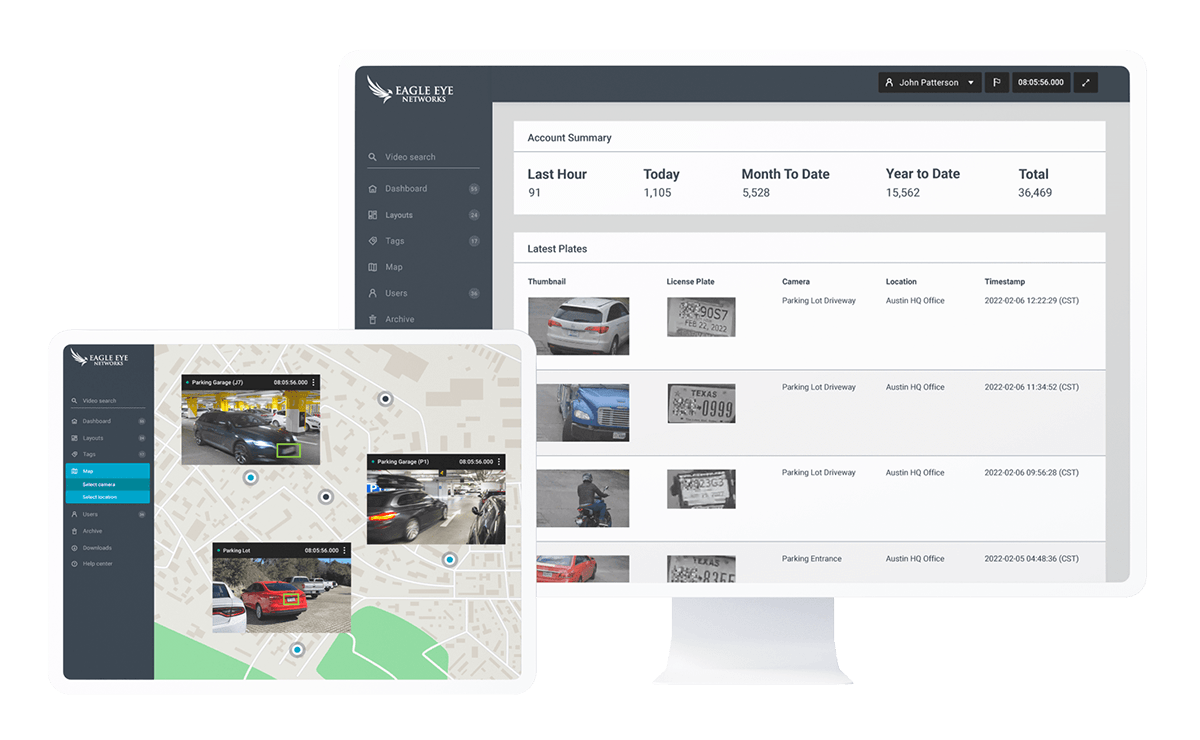
For your company security cameras, do you need an expert installer?
It is always advisable to hire a professional for business security camera installation since it is complicated and requires vast knowledge and expertise. The answers to the aforementioned queries should assist you in selecting a business security camera system installation specialist who will work with you from beginning to end, from developing a unique solution to servicing your equipment for years to come.



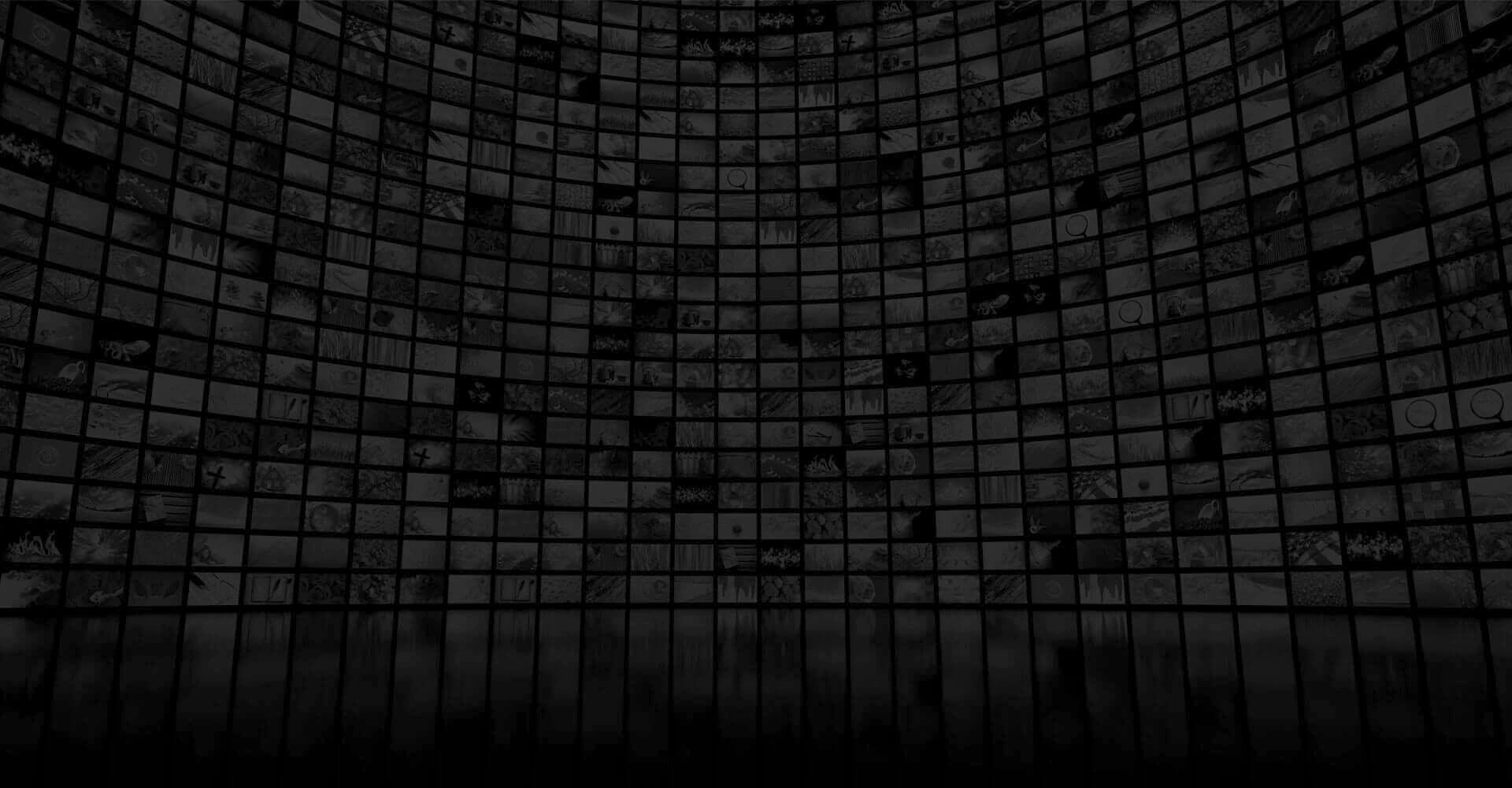
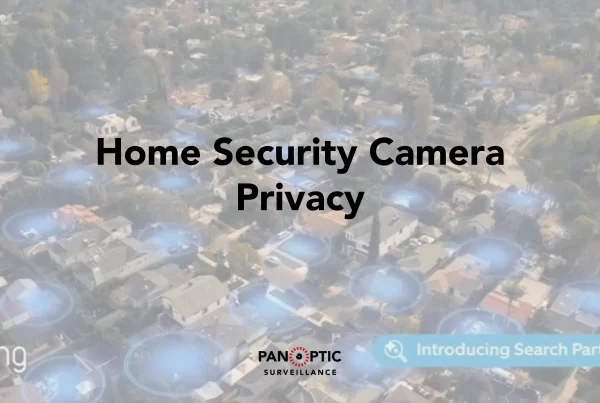
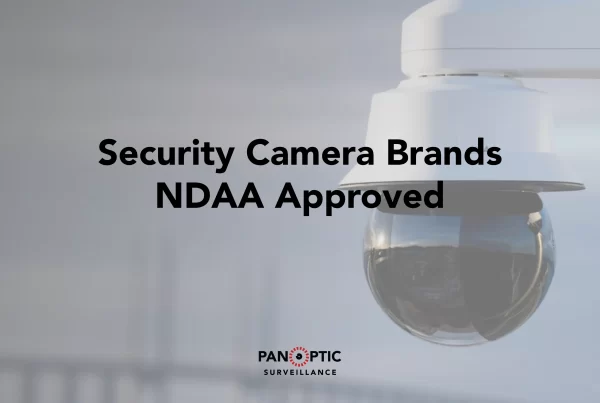
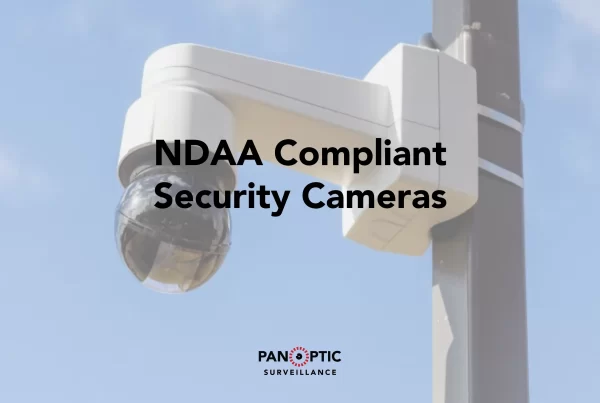






One Comment